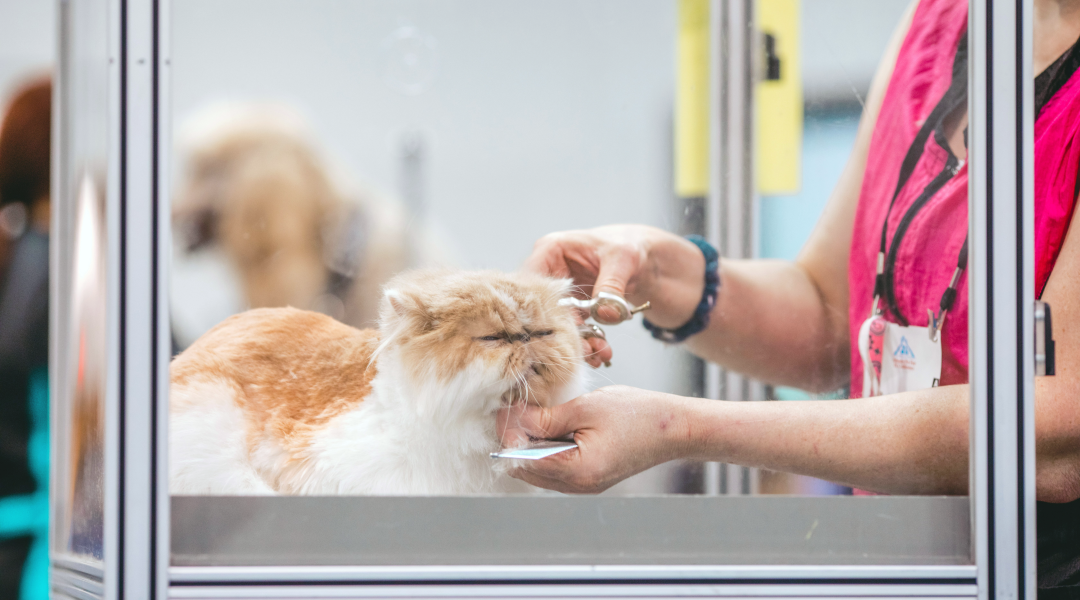
Choosing the Right Veterinarian: A Guide to Ensuring the Best Care for Your Pet
LifeSong StaffThe bond between a pet and its owner is profound, and ensuring the well-being of our furry companions is paramount. One crucial aspect of pet care is selecting the right veterinarian. Just as we carefully choose our own healthcare providers, selecting a veterinarian requires thoughtful consideration. This essay explores the key factors to consider when choosing the right veterinarian for you and your beloved pet.
Understanding Your Needs
Before embarking on your search for veterinarians near me, it's essential to understand your specific needs and preferences. Consider factors such as the type of pet you have, any existing health conditions or special requirements, and your location. For example, if you have an exotic pet or one with specialized needs, you may require a veterinarian with expertise in that area. Additionally, consider factors such as the proximity of the veterinary clinic to your home or workplace, as convenience can play a significant role in regular check-ups and emergencies.
Seek Recommendations
One of the most reliable ways to find a reputable veterinarian is through recommendations from trusted sources. Reach out to friends, family members, neighbors, or fellow pet owners for their experiences and recommendations. Online review platforms and pet-related forums can also provide valuable insights into local veterinarians' reputations and quality of care. Pay attention to recurring themes in reviews, such as professionalism, compassion, and the quality of medical treatment provided.
Research Credentials and Specializations
Once you've gathered recommendations, it's crucial to conduct thorough research into the credentials and specializations of potential veterinarians. Check if the veterinarian is licensed and accredited by relevant veterinary organizations and regulatory bodies. Additionally, inquire about their educational background, training, and any specialized certifications or areas of expertise they may have. For example, if your pet requires dermatological care or orthopedic surgery, seek out veterinarians with experience and specialization in these areas.
Visit the Clinic
A visit to the veterinary clinic can provide valuable insights into the facility's cleanliness, organization, and overall atmosphere. Pay attention to factors such as the clinic's level of hygiene, the friendliness and professionalism of the staff, and the availability of modern medical equipment and technology. A well-maintained and organized clinic reflects a commitment to providing high-quality care to patients and their owners.
Evaluate Communication and Rapport
Effective communication between you, your pet, and the veterinarian is essential for building trust and ensuring the best possible care. During your initial consultation or visit, observe how the veterinarian interacts with both you and your pet. A good veterinarian should demonstrate empathy, active listening, and a genuine interest in your pet's well-being. They should also be able to explain medical conditions, treatment options, and preventive care measures in a clear and understandable manner, without using overly technical language.
Assess Emergency Care Services
Emergencies can happen at any time, so it's important to assess the availability and quality of emergency care services offered by the veterinarian or clinic. Inquire about their after-hours emergency protocols, including how emergencies are handled outside of regular business hours and the availability of on-call veterinarians or referral to emergency veterinary hospitals. Knowing that your veterinarian is equipped to handle emergencies can provide peace of mind and assurance during stressful situations.
Consider Cost and Payment Options
While cost should not be the sole determining factor in choosing a veterinarian, it is an important consideration for many pet owners. Inquire about the clinic's fees for routine services, consultations, diagnostic tests, and procedures. Additionally, discuss payment options, such as insurance acceptance, payment plans, or financing options, to ensure that veterinary care remains affordable and accessible for you and your pet. Transparency in pricing and billing practices is essential for avoiding unexpected financial burdens.
Assess Compatibility and Trust
Ultimately, the relationship between you, your pet, and your veterinarian should be built on trust, respect, and mutual understanding. Assess your compatibility with the veterinarian based on factors such as your comfort level, shared values regarding pet care, and the ability to establish a long-term relationship. Trust your instincts and choose a veterinarian with whom you feel confident entrusting your pet's health and well-being.
Conclusion
Choosing the right veterinarian is a critical decision that can significantly impact your pet's health and quality of life. By understanding your needs, seeking recommendations, researching credentials, visiting the clinic, evaluating communication and rapport, assessing emergency care services, considering cost and payment options, and assessing compatibility and trust, you can make an informed decision that ensures the best possible care for your beloved companion. Remember that finding the right veterinarian is an ongoing process, and don't hesitate to switch providers if you feel that your pet's needs are not being met. With diligence and care, you can forge a partnership with a veterinarian who shares your commitment to providing compassionate, high-quality care for your pet.
